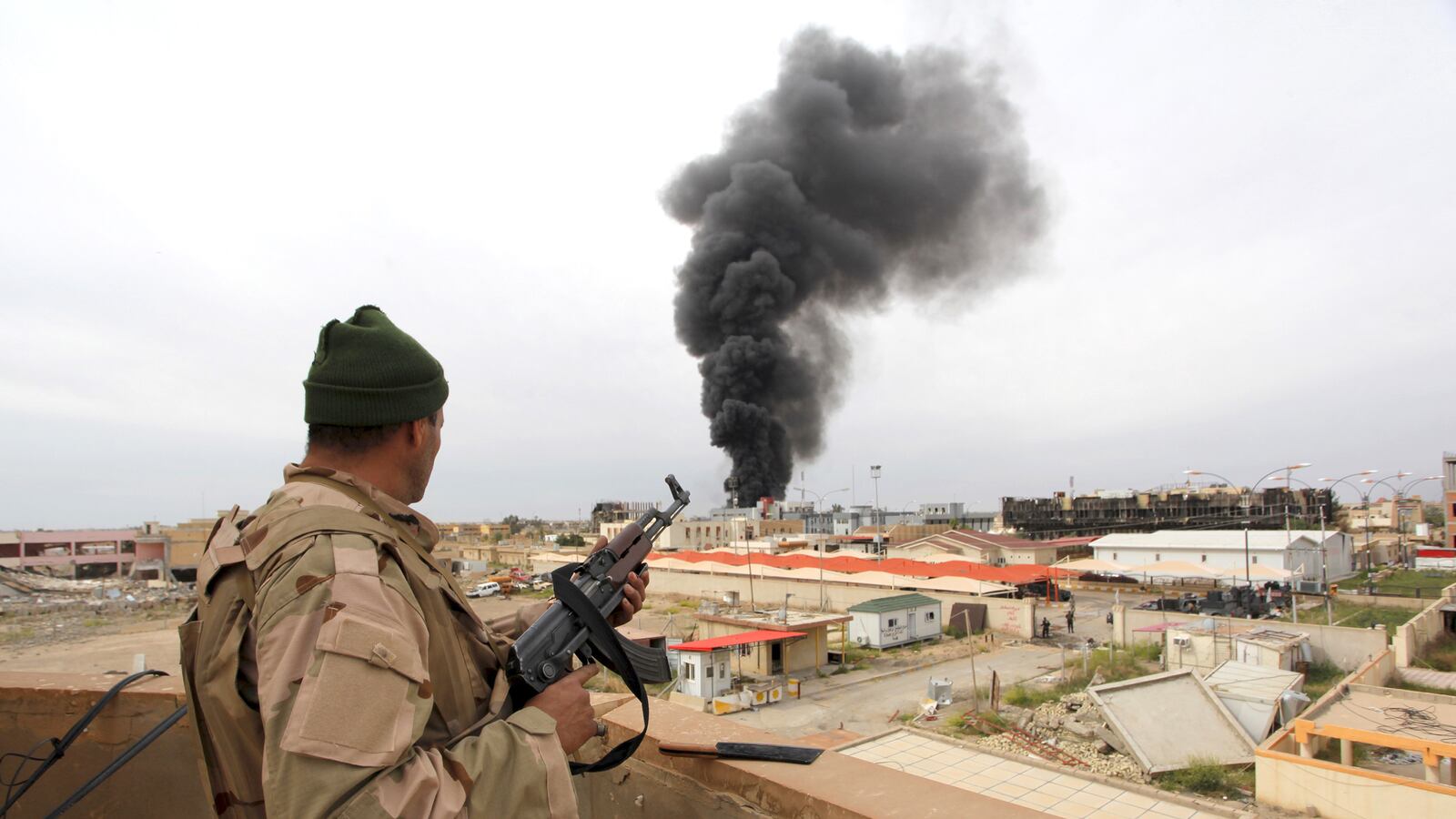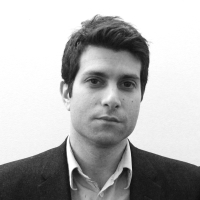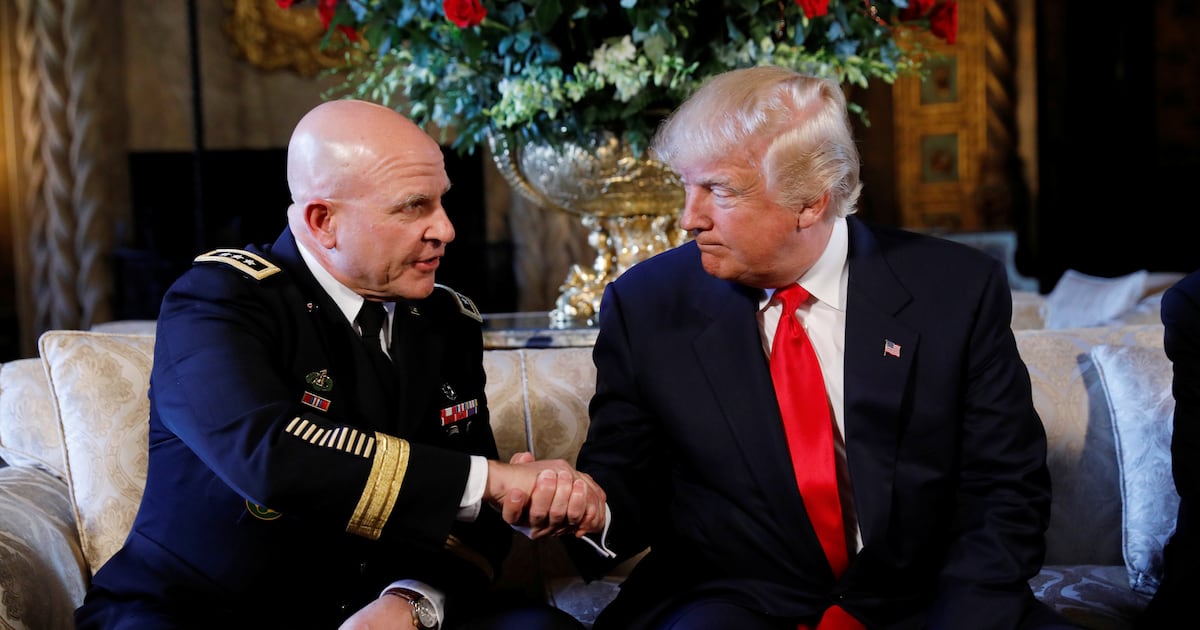The road to Baghdad runs through Ramadi. So why hasn’t the Iraqi government done more to reinforce the city, which has been under siege from ISIS forces since early 2014, even before the fall of Mosul?
The answer is politics: Ramadi is predominantly Sunni, and powerful elements of Baghdad’s Shia ruling class fear empowering Iraq’s Sunnis more than they fear allowing ISIS to continue attacking and bleeding the country’s Sunni regions.
“Ramadi is very close to Baghdad,” said General Najim Abed al-Jabouri, who was recently appointed Nineveh operations commander for the Iraqi army. “If the terrorists control Ramadi, Baghdad is under a bigger threat.”
The general is planning and eventually will lead the effort to retake Mosul. But that can’t happen until Ramadi is pacified.
The Sunni force to retake Mosul has not been built yet. The force to take back Ramadi exists, but it needs weapons, ammo, and more important, Baghdad’s willingness to trust it enough not to disarm it afterward. It may also need Iran’s approval.
The strategic goals of Baghdad are currently aligned with Iran’s: to secure infrastructure and negate Sunni threats along the Shia-sectarian fault lines in and around Baghdad, Diyala, and Salah-ad-Din. This strategy is evident in the Tikrit offensive and the commitment of limited forces for the stalled offensive in Baiji.

For the Tikrit offensive, a force of reportedly 30,000 fighters was generated to liberate Saddam Hussein’s hometown from ISIS and decide who gets to resettle it.
Shia militia-led Peoples Mobilization Units (PMUs) outnumbered Iraqi army and National Police units on the ground. These militias and paramilitary forces were led by Katiab Hizbollah’s al-Muhindis and Badr’s Hadi al-Ameri. Just behind the scenes, Iran made no secret of its role planning the operation and the leading role played by its Quds Force commander, Qassem Soleimani.
The rallying cry for the offensive was to avenge the Camp Speicher massacre of June 2014, when ISIS executed 1,700 Shia cadets. It was also a symbolic operation to move into the Sunni heartland and demonstrate that Shia militias aligned with Iran can, acting alone, negate future Sunni threats to Baghdad and, by extension, Tehran.
It didn’t work out that way. The Iran-planned, militia-led offensive stalled, and Iraq’s government requested U.S. airstrikes to break the stalemate. The United States delivered the airstrikes on the condition that militias not take part in the operation. They reluctantly complied, and the U.S. air support broke ISIS’s hold on the city. But what now for Tikrit? What prevents ISIS, a group fond of launching counterattacks, from overrunning the city again?
Iraq’s government had announced that thousands of Sunni tribesmen would be part of the effort to clear ISIS from Tikrit. But their role never materialized. After Tikrit was cleared, without a force viewed as legitimate left to hold the city, it has become a lawless ghost town.
There is no emotional magnet event in Ramadi to generate a force to retake it, no rallying cry to motivate Shia men from the south to help their Sunni brothers push ISIS back in Anbar, the province where Ramadi is located.
The Iraqi Security Forces (ISF) are less willing than ever to fight in places absent Shia political interests and sectarian ties. And the Iraqi security apparatus is increasingly beholden to Shia political parties unwilling to push their fighters into areas without those ties.
Iraq’s prime minister, Haider al-Abadi, has made overtures to Iraq’s Sunnis, exposing himself to some political risk in the process. In early April, Abadi visited Anbar, showcasing his effort to bring Sunni tribesmen into the volunteer military units known as the Hashd, which have become the backbone of Iraq’s army. One photo taken during the Anbar visit showed Abadi handing out rifles to Sunni volunteers.
But the prime minister faces a powerful opposition led by Iraq’s former Prime Minister Nouri al-Maliki, who is closely aligned with Iran and with Iraq’s powerful Iranian-backed militias. Even if Abadi’s gestures to Iraq’s Sunnis are entirely sincere, and many in the country doubt that, carrying the policies through could cost him his own power.
“Abadi can’t realistically empower Sunnis without losing his own power,” said Sterling Jensen, who worked closely with Anbar’s Sunni tribal leaders as an interpreter for the U.S. government from 2006 to 2008 and stays in close contact with several high-level officials in Anbar. “If he empowers Sunnis, the Shia militias and his constituency in Baghdad will strip him of his power.”
Meanwhile, without a Sunni force in Anbar, ISIS has staged another assault and gotten closer to the seat of government power in Baghdad.
A related problem with Abadi’s attempt to bring Sunnis into the security forces is how little came of it.
Despite promises of arms going to Sunni volunteers in Anbar, few have been delivered, according to people there.
Multiple people in Anbar who once fought alongside the U.S. against an earlier incarnation of ISIS “haven’t been getting the weapons they need,” Jensen said.
And what weapons are delivered in Anbar, he said, go to people “connected to the Iraqi army or the joint operations command” rather than to the kind of local irregular forces critical to Anbar’s defense.
General Jabouri acknowledged that the number of weapons sent to Anbar “wasn’t enough.” But arming the tribes is complicated by questions about their allegiance, he said.
“Yes, it wasn’t enough and it wasn’t all the tribes who received them,” the general said. “But the situation in Anbar is very complex. You don’t know who is your enemy. Because of the corruption before, many of the weapons that went to Anbar from the government went to the black market or to Da’ash,” the Arabic term for ISIS.
There are undoubtedly Sunni sectarians in Iraq. Some are of the religious variety, like ISIS, while others are revanchists unwilling to be ruled by or share power with the country’s Shia majority. But Baghdad has shown little interest in distinguishing between Sunnis who have actively collaborated with ISIS or are otherwise irreconcilable and those have grievances against the government but are suffering under ISIS and desperate for the resources to fight it.
The main obstacle to creating a Sunni resistance to ISIS is not vetting forces in Anbar, a task Baghdad has had more than a year to carry out. Nor is it the kind of logistical problems that are common in Iraq’s military but have not prevented weapons from reaching the Shia militias. It is the Iraqi government’s unwillingness to allow the creation of a capable Sunni force to fight ISIS out of fears that that force may one day turn their weapons on Baghdad.
During the 2007 Iraq War troop surge, U.S. forces forced partnerships with the Shia majority Iraqi army units in and around Baghdad to work with the U.S.-sponsored Sunni security initiatives the Sons of Iraq and the Sunni Awakening in Anbar. This force does not exist anymore. It was viewed as a threat under Maliki’s rule and disarmed and disbanded by Iraq’s former prime minister starting in 2011, during the U.S. drawdown.
With the United States acting as a third-party guarantor, the ISF and the Sons of Iraq worked together to secure the Ramadi-Fallujah-Abu Ghraib corridor and defeat al Qaeda in Iraq. The corridor was a key AQ facilitation route to conduct high-profile attacks in Baghdad to incite and foment the Shia sectarian responses leading to the violence and high body counts in the capital in 2005-2006. Now the corridor is being ceded to ISIS as the predominantly Shia force falls back to areas along the Shia-Sunni sectarian faultline, their default position.
Losing Ramadi and ceding the corridor into Baghdad will lead to even more attacks in Baghdad, said General Jabouri.
“This is a very big threat to Baghdad. If [ISIS] controls Ramadi and Anbar, it gives them a big morale boost.” It also strengthens the connections between ISIS forces in Iraq and Syria, the general said. “The road between Syria and Ramadi is open, so they can always send more fighters to Ramadi.”
There is a self-defeating circular logic that has tightened around Iraq’s leadership and is squeezing the rest of the country. More than anything, defeating ISIS requires a capable ground force. Baghdad has refused so far to entrust Iraq’s Sunnis with their own defense, preferring to arm the Shia militias and choose where they fight. In turn, Sunni areas like Anbar are vulnerable to attacks like the one on Ramadi, which further threatens Baghdad. With Baghdad under threat, the government is even less willing to siphon resources from the militias, which comprise the capital’s Shia defense force and arm the Sunnis. And from that logic ISIS prospers.
The chances of ISIS overrunning Baghdad’s defenses in a frontal assault are slim. That’s true even if Ramadi remains in the jihadi army’s control. The terror group is still small compared to Iraq’s security forces, and an attempt would likely trigger an aggressive response from the United States and Iran. But using Ramadi as a staging area, ISIS can put Baghdad under constant threat of attack by targeting its Shia neighborhoods, which are already the site of frequent and deadly car bombs. Those attacks could lead to reprisals against Baghdad’s Sunnis, like the riot that exploded last week, which could trigger a larger and even bloodier civil war, putting the state itself under the threat of collapse.
Despite some U.S. blunders in the anti-ISIS campaign—downplaying the significance of Ramadi is the most salient recent example—American airstrikes have helped blunt ISIS’s momentum. But U.S. airpower isn’t enough to turn the tide in Iraq. Only Iraqi forces can secure the country’s disputed areas, holding them after ISIS has been cleared to prevent re-infiltration and consolidate gains. Iraq’s political dynamics, which underscore the failures to mount an effective resistance to ISIS, can’t be solved by the United States.
But though U.S. influence in Iraq won’t ultimately determine the country’s future, it is significant. When U.S. officials go from dismissing Ramadi as not strategically important to rushing arms into Iraq after the city falls, it’s cause for concern. Not least because there’s no guarantee, if Baghdad stays its course, that those weapons will be pointed at our common enemy and not used to prevent a Sunni army capable of defeating ISIS from ever forming.







